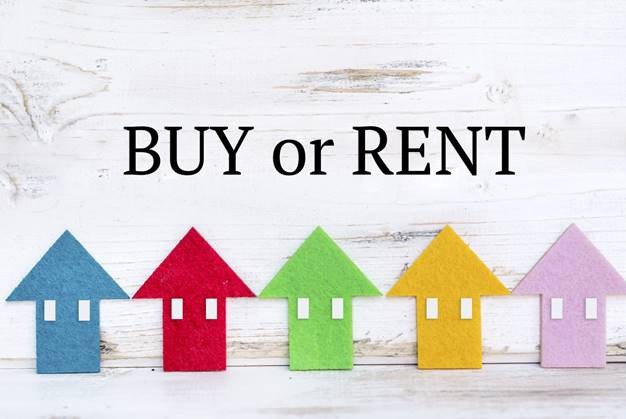
To buy or to rent? That is the question. The important thing when making up your mind is to consider all the advantages and disadvantages of each situation. Here we look at the relative benefits of buying vs renting a house.
The real estate company Tecnocasa has helped to create this small manual to help you choose between buying and renting property in Italy. The starting point, of course, must be a realistic awareness of your financial situation.
How much money does it take to buy a house?
To buy a house, you must have at least 20% of the value of the property in cash, assuming that there is the possibility of getting a mortgage, which usually covers up to 80% of the value of the property. Additionally, there is the money needed to cover the extra costs like property transfer taxes and estate agency fees. You also need to be in a secure position to take out a mortgage, with sufficient guarantees of income to be able to apply to a credit institution.
How much does it cost to rent?
If you choose to rent property, the initial capital you need is minimal in comparison, being limited to the money needed to cover such expenses as the security deposit, which may represent between one and three months’ worth of rent.
What are the advantages of buying a house?
Once you've established that your financial situation is solid enough to buy a house, here are the advantages of this choice:
- It is a good investment: whether you use it to live in yourself or decide to rent it, the property is a good investment in terms of capital appreciation. Since 1998, the value of houses in Italy has recorded an average nominal increase of 35.2%, a percentage that can be exceeded if the investment is well targeted (a property in good condition in a central area, etc.). If, on the other hand, you decide to buy as an investment, you have a low risk and a gross annual return of around 5.0%. Remember that the investment is only good if the choice of property is prudent in terms of quality and location. Otherwise, you risk getting caught up in a purchase that can only become devalued.
- Current market conditions are favourable: after 10 years of price reductions, now is a good time to buy affordable properties in Italy. Furthermore, the increased willingness of banks to provide mortgages and low interest rates are now a good reason to buy a house.
- Possibility to customise: by buying the property, you can model it after your own fashion, certainly a point in favour. Thanks to the fall in house prices of properties in need of renovation and the tax incentives for remodelling homes in Italy, this is now a particularly propitious time to buy.
- Alongside these reasons linked to the opportunities that the property market offers us today, we find more "psychological" but no less important aspects: purchasing a house responds to our desire for stability and security and, very often, the desire to leave an something solid to the children (or to help them buy their homes).
What are the advantages of renting a house?
Whether you do not have the necessary funds to purchase a house, or if there are travel and mobility needs related to work or other factors that stop you being tied down to one place, the right choice for you could be to rent a house. Here are the advantages:
- Not immobilising your capital (sometimes of a significant amount) which can thus be freed up to use for other purposes or for other activities.
- Ensures greater mobility and the ability to change where you live more easily, whether it’s city, neighbourhood or house. All you have to do is give the required notice period as laid down in the lease agreement.
- Being sure of your monthly expenses (in this case the rents) that will have to be incurred and not having to deal with unforeseen expenses like structural maintenance that can generally be burdensome. If you rent, these costs are the sole responsibility of the property owner.
- You don’t have to bear the costs associated with the purchase of the property (purchase tax, any commission to the real estate agency, costs of taking out a mortgage, notary fees, etc.).